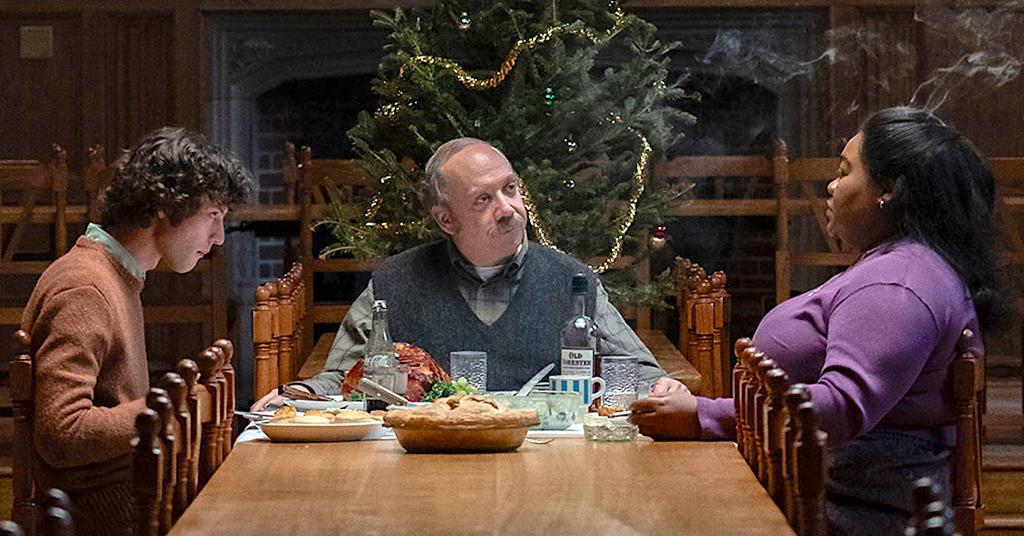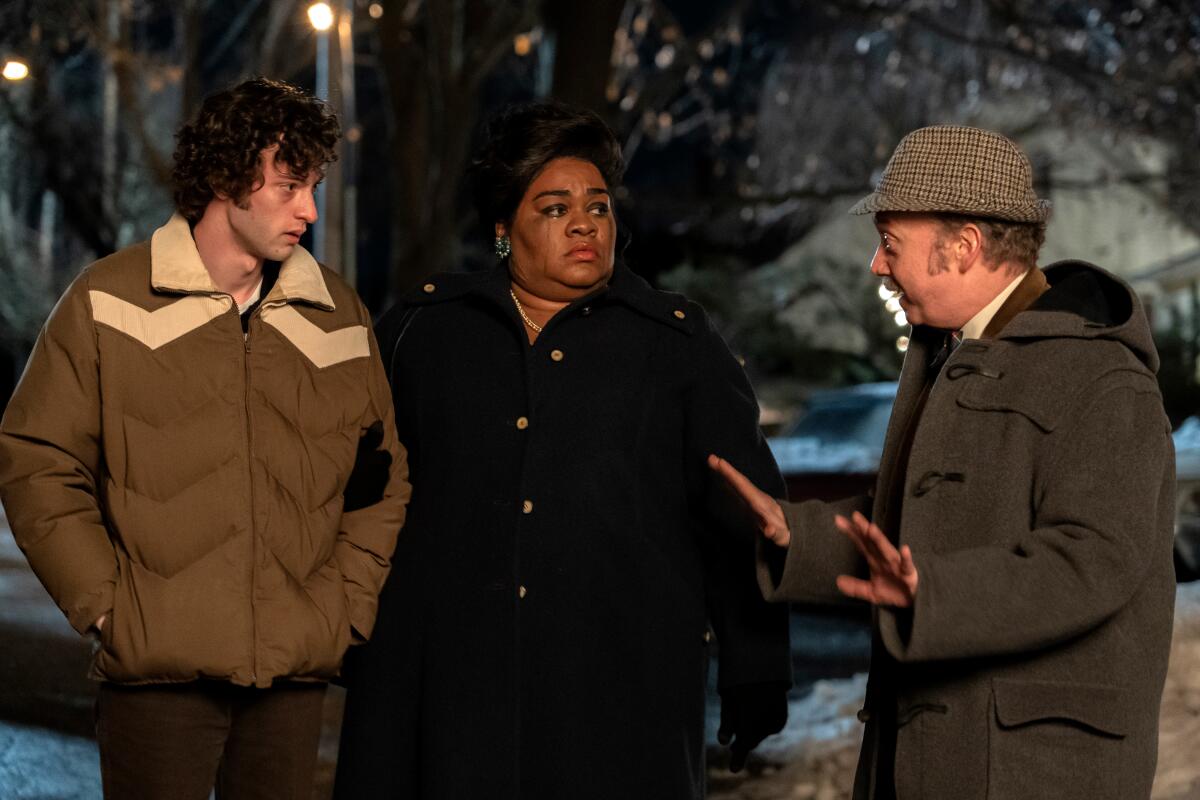Alexander Payne’s The Holdovers is not the kind of film you would expect to contain a dose of movie magic, but there it is, right there in the lead performance by Paul Giamatti. Giamatti plays an acerbic professor at a New England boarding school during Christmas of 1970 – this random time period 53 years in the past standing front and centre in our 2023 cinematic nostalgia, as that is also when Are You There God? It’s Me, Margaret takes place. As one of those details that seems central to the performance rather than a trick for its own sake, Giamatti’s Paul Hunham has exotropia, more commonly known as being wall-eyed – which means his eyes naturally point in different directions, leaving it up to any particular interlocutor to decide which one to engage.
It may be possible to search the internet and definitively discover how Giamatti pulled this off. Is it contact lenses? Is it digital? Is this just a party trick Giamatti has always been able to perform? It doesn’t matter. What matters is that Payne and Giamatti have made a choice that illustrates how Paul has come to be in this place in his life – without the affection of his students or a partner, playing guardian to young men held over at school during the holidays, alone except for the school’s chef, grieving a son lost in Vietnam, and the one student still there after the others are swept off in a helicopter to go skiing. Any doubts about the validity of this choice are put to rest in a moving callback at the film’s climax.
The film’s wistful feel might be a bit of a magic trick as well. It’s too bad the Australian distributor could not figure out how to release this immaculate reproduction of early 1970s filmmaking a couple weeks ago, as this is as much a Christmas movie as any this year. We tend to look down our noses at such films, and with good reason – 2023 represented a particularly poor batch of them. The Holdovers, on the other hand, does what Christmas films should do – it interrogates how some people’s natural levity in late December is other people’s sorrow over those who are now absent, or maybe were never there in the first place.
On the student side, the film focuses on Angus Tully (Dominic Sessa), an academically gifted young man who has nonetheless been kicked out of three previous boarding schools for his bad attitude, now facing down the prospect of military school if it doesn’t work out at Barton Academy. His father has died and his mother now seems eager to make a new life with her new husband, which isn’t off to a promising start for Angus when she disinvites him from a tropical Christmas holiday, describing it as the honeymoon they never had. Several other students are similarly marooned, and Angus jockeys with them in varying degrees of genuine dislike – but misses them terribly when one wealthy father whisks away the whole lot a mere 24 hours into their expected winter sojourn. Not Angus, though, because the school could not get a parent on the phone to approve this impromptu ski trip.
That leaves Angus with the surly Professor Hunham, who needs nothing beyond the walls of Barton and disdains the majority of his poor-performing students, equally for their disinterest in the classics and for the fact that their money means they don’t really need to try. Angus and his teacher might be a natural match, both misanthropes in their way, but their similarity only seems to intensify their mutual antipathy. The third in this motley crew is Mary Lamb (Da’Vine Joy Randolph), the Barton head cook, who’s also staying on campus and whose son, a former Barton student, was killed in Vietnam earlier in the year. They’re miserable for different reasons, but that can’t remain the only dimension of their relationship. It is, after all, a Christmas movie.
In Payne’s hands, it could be that these characters do stew in their own juices for the entire movie – or so goes his reputation. Despite making some very funny comedies – including one that previously featured Giamatti, Sideways – Payne has been accused of a lack of humanity toward his characters, of delighting in their perverse misery. This is a rather simplistic take on the director’s career, since most if not all of his movies finish on a conventionally uplifting note. There’s no mistaking him for a Scrooge in The Holdovers, as this film may be even more interested in achieving that outcome than most. The fact that the viewer never feels as miserable as the characters is a testament to the funny interplay between them and Payne’s excellent grasp of tone. He’s not giving you anything on a platter here, yet you never worry whether it’s coming.
Giamatti is doing a variation on his most familiar mode, the kind that made him rant about merlot in Sideways. Since it’s such a watchable form of self-loathing and since you know it comes from a place of pain rather than a place of empty bluster, it doesn’t matter that the only new element of his performance is the one involving his eyes. For Randolph, who should be in the conversation at Oscar time, her character’s deep and painful sorrow is something new. The actress came on our radar as the larger-than-life Lady Reed in Dolemite is My Name, but this is a far more internal, world-weary performance, all the more expertly done because it doesn’t rely on a single powerhouse scene of grieving. Despite not asking for this role and being burdened by her own sadness, she’s key to unlocking things in the two men.
Sessa should not go unmentioned, the newcomer making his film debut, who might be able to forge his own Giamatti-style career if The Holdovers is any indication. Like Giamatti and like Payne, he has the ability to find the black humour in a dire situation, and make the whole thing improbably light on its feet. We shouldn’t necessarily want to spend Christmas with these three people in a snowed-in boarding school, but we do, and that may be The Holdovers’ greatest magic trick of all.
The Holdovers opens today in cinemas.


